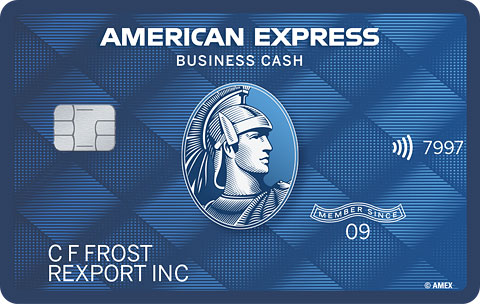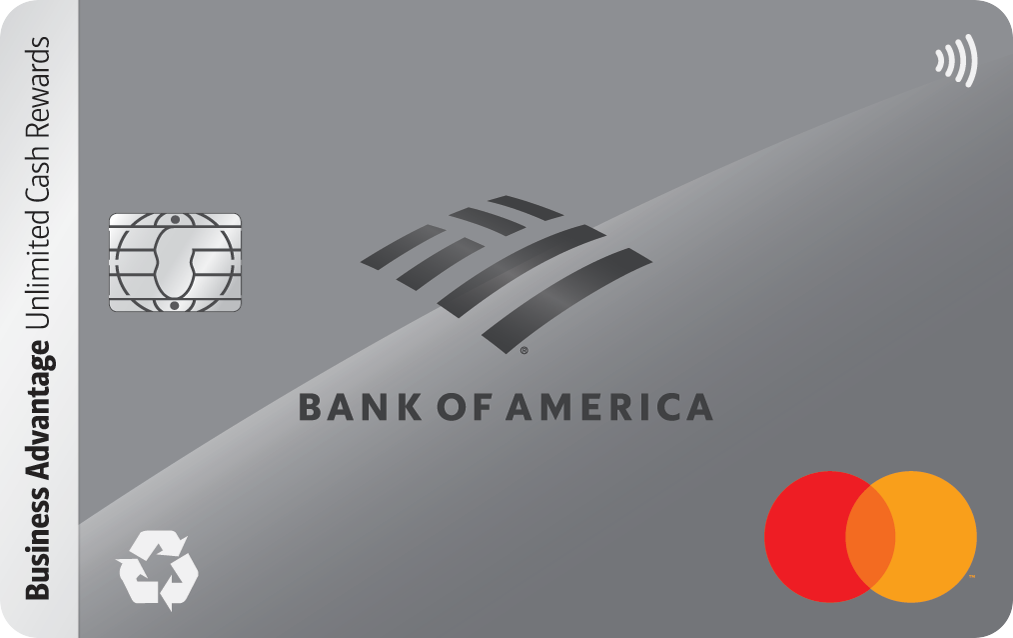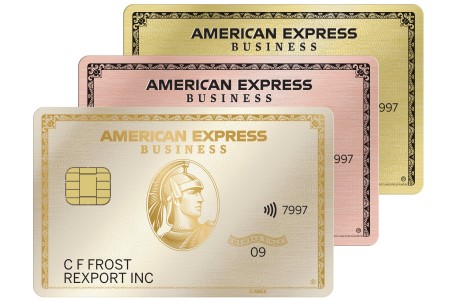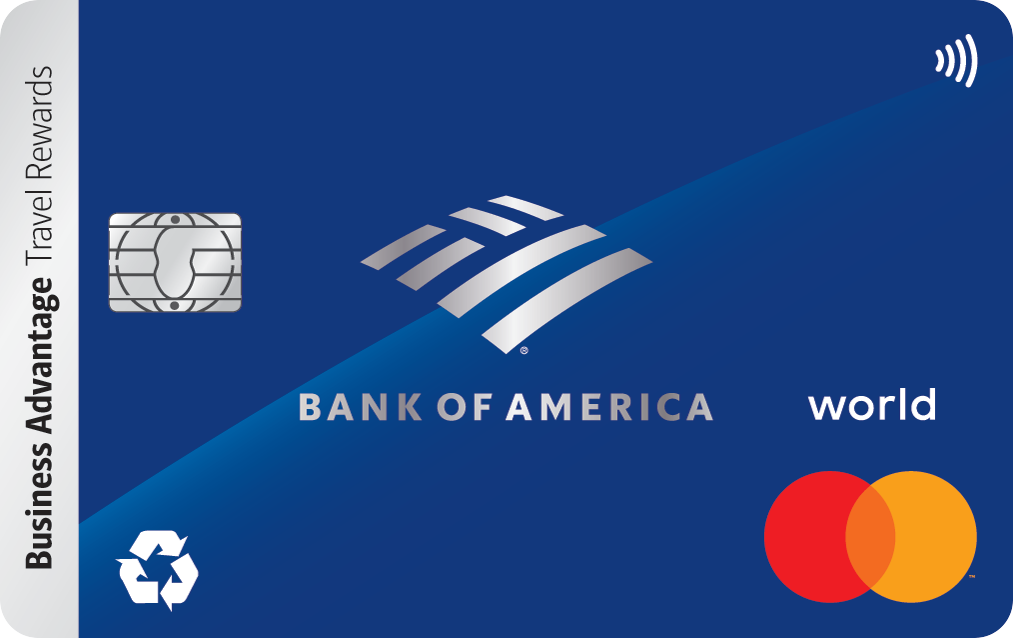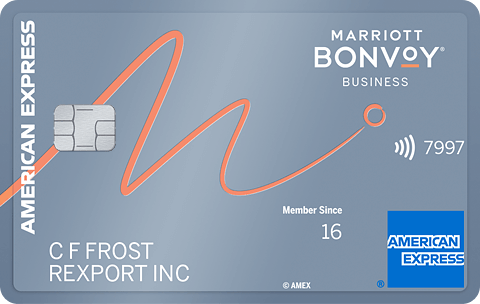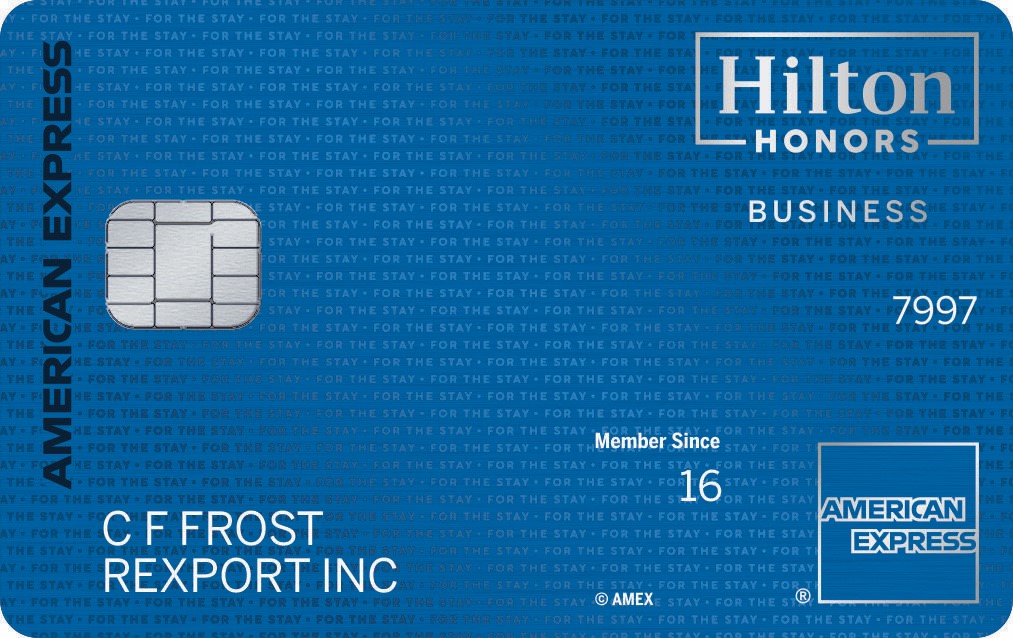When you’re choosing a business credit card, you will have lots of credit card offers to choose from. Should you get a credit card with cash back rewards or travel rewards? Or maybe both?
Here’s how to pick the best business rewards card for your business needs.
What are the benefits of cash back or travel rewards for business credit cards?
Small business credit cards can be very rewarding. Business credit card issuers know spending tends to be higher on these cards, and they will compete with lucrative rewards for small business cardholders.
Most credit card rewards fall into two broad categories: cash back or points. Cash back is pretty straightforward. You’ll usually earn 1 or 2 cents for every dollar charged on the card. Cash back bonus categories where you earn more for charges in certain categories, may earn you even more. You may redeem your cash back for a statement credit, or in many cases you can request a transfer of that credit to your bank account or even a check.
When you earn cash back, for example, you’re essentially getting a rebate on your credit card purchase. It’s like getting everything you buy with that card on sale.
Travel rewards cards earn you points on eligible purchases that you can redeem for travel purchases. Points may be earned toward a specific loyalty program (for example, Delta Skymiles or Hilton Honors Rewards) or may be used for a variety of travel purchases in the card issuer’s travel portal. For example, American Express Membership Rewards points or Chase Ultimate Rewards points can be redeemed for all different types of travel through Amex Travel or Chase Ultimate rewards.
With both types of cards there may be other redemption options including gift cards or merchandise. And many of these cards carry additional perks such as purchase protection, extended warranties, and free employee cards.
There are two important things to keep in mind when shopping for business rewards cards.
First, there may be an annual fee. Premium reward cards, in particular, come with annual fees and some can be quite steep. Make sure the benefits you receive are worth more than the annual fee. For business owners who charge a lot on their card, that’s usually easy.
The second caveat is that interest can quickly wipe out savings. If you expect to carry a balance on your credit card, you’re better off looking for a card with a 0% intro APR. That said, there are some cards that offer rewards and a low introductory APR for the first year or more on purchases and/or balance transfers, so it may be possible to get both if you pick the right card.
Keep reading for our picks for the best business credit cards.
What are the different travel rewards you can have with a business credit card?
Travel rewards cards allow you to earn points toward free airfare, hotel rooms or car rentals. But that’s just the start. Some of the additional perks you may get include:
- Airport lounge access
- Priority boarding
- Free checked bags
- Hotel room upgrades
- Free hotel breakfast
- Car rental insurance
- Trip delay or cancellation insurance
- Lost baggage insurance
The most popular way to redeem points is for travel, including airfare, hotel rooms, rental cars and even travel experiences. Travel cards may let you transfer points to other partner loyalty programs so you can combine your points with other points you’ve earned.
Most programs also allow you to redeem them for gift cards, merchandise, as a statement credit or sometimes to pay for previous purchases on the card.
Credit cards with cash back for businesses
Here are some of the best cash back credit cards for small business owners. Click on each card’s details to find out how much cash back you can earn.
One of the highest cash back rates available for small business cards.
Pros
- Attractive intro financing offer
- High rates of cash back for business spending
- No annual fee.
Cons
- No rewards bonus for initial spending
- Foreign transaction fees.
Intro APR
Purchase APR
Annual Fee
Welcome Offer
Intro APR
Purchase APR
Annual Fee
Welcome Offer
All information about the Chase Ink Business Cash℠ Credit Card has been collected independently by Nav. This card is not currently available through Nav. To see what business credit cards are available, please visit the Nav Credit Card Marketplace.
Pros
- All information about the Chase Ink Business Cash℠ Credit Card has been collected independently by Nav
- This card is not currently available through Nav
- To see what business credit cards are available, please visit the Nav Credit Card Marketplace.
Cons
- All information about the Chase Ink Business Cash℠ Credit Card has been collected independently by Nav
- This card is not currently available through Nav
- To see what business credit cards are available, please visit the Nav Credit Card Marketplace.
Intro APR
Purchase APR
Annual Fee
Welcome Offer
Credit cards with travel rewards for businesses
These cards offer some of the best travel rewards for small business owners. Click on card details to find out how much you can earn in travel rewards.
High annual fee, best for large purchases in consistent categories.
Pros
- This card has a great rewards program and offers flexibility compared to true charge cards.
Cons
- High annual fee
- Only 1x rewards outside of your top categories.
Intro APR
Purchase APR
Annual Fee
Welcome Offer
All information about the Chase Ink Business Cash℠ Credit Card has been collected independently by Nav. This card is not currently available through Nav. To see what business credit cards are available, please visit the Nav Credit Card Marketplace.
Pros
- All information about the Chase Ink Business Cash℠ Credit Card has been collected independently by Nav
- This card is not currently available through Nav
- To see what business credit cards are available, please visit the Nav Credit Card Marketplace.
Cons
- All information about the Chase Ink Business Cash℠ Credit Card has been collected independently by Nav
- This card is not currently available through Nav
- To see what business credit cards are available, please visit the Nav Credit Card Marketplace.
Intro APR
Purchase APR
Annual Fee
Welcome Offer
Intro APR
Purchase APR
Annual Fee
Welcome Offer
A good option for racking up hotel points. Comes with membership, travel, and airport perks.
Pros
- Earn valuable points with Marriott Bonvoy Hotels and other popular spending categories
- Free Night Awards each year.
Cons
- Marriott Bonvoy points are most valuable when you understand how to use them.
Intro APR
Purchase APR
Annual Fee
Welcome Offer
A great card for the frequent business traveler who enjoys staying at Hilton properties. This card comes with a Hilton rewards status which allows you to enjoy travel perks from room upgrades to bonus points to earn free nights.
Pros
- Generous welcome offer and reward bonus structure.
Cons
- Higher interest rate and an annual fee.
Intro APR
Purchase APR
Annual Fee
Welcome Offer
How to maximize your travel rewards with your business credit card
To maximize your travel rewards, the first question you must ask yourself is whether you are loyal to a particular airline or hotel brand. If you are, then a card that is co-branded to that specific airline or hotel chain could be worthwhile.
With co-branded cards, you can earn points toward that airline or hotel’s rewards program. You’ll typically earn bonus points when you use that card to book travel with that brand. In addition, you may get perks such as free upgrades or elite status. Examples of these types of cards include:
- Delta SkyMiles® Reserve Business American Express Card
- Citi® / AAdvantage Business™ World Elite Mastercard®
- The Hilton Honors American Express Business Card
- Marriott Bonvoy Business® American Express® Card
If you are not loyal to a specific brand then you will want a travel rewards card that is more flexible.
With general purpose travel reward cards, you earn points that may be redeemed for travel on a variety of airlines, hotels or other travel partners. You will book your tickets through the card issuer’s online travel portal to redeem points.
Examples include:
- American Express® Business Gold Card
- The Blue Business® Plus Credit Card from American Express
The key to maximizing travel points is to use your card for every business expense possible, and to also try to earn more than one point per dollar spent whenever possible. You can do this through cards that offer bonus points for spending in specific categories.
A great choice here, for example, would be the American Express® Business Gold Card. Earn 4X Membership Rewards® points on the top two eligible categories where your business spends the most each month from 6 eligible categories.
Welcome offers are another way to maximize travel rewards. These change periodically but if you stay alert to offers you may earn 40,000— 100,000+ points by spending a certain amount on the card within a certain time period.
You can also use the card issuer’s shopping portal for purchases that earn bonus rewards. If you know you’re going to make a specific purchase, check the portal to see what deals are available.
How to maximize your cash back rewards with your business credit card
Similar to the strategy with travel reward cards, you want to use your cash back business credit card for as many business purchases as possible to maximize rewards. Try to aim for more than 1% cash back by choosing the right card for each purchase. And consider a card with a good welcome offer.
For example, the Ink Business Cash® Credit Card offers a high cash back rate for certain purchases Earn 5% cash back on the first $25,000 spent in combined purchases at office supply stores and on internet, cable and phone services each account anniversary year. Earn 2% cash back on the first $25,000 spent in combined purchases at gas stations and restaurants each account anniversary year. Earn 1% cash back on all other card purchases with no limit to the amount you can earn..
Which credit card reward program is better for your business?
When deciding on a business credit card, you’ll need to evaluate your business spending, your business needs (rewards versus low-cost financing) as well as how much time and effort you want to put into earning rewards.
The good news is that you likely don’t have to choose just one card. Business owners typically carry multiple credit cards, so you may want to choose a few cards that together meet your needs.
If you want to keep it simple, a cash back card may be the way to go. It’s generally easy to understand how much cash back you’ll earn — usually in the range of 1-5% back. Additionally, cash is the most flexible reward you’ll earn since you can use it for anything.
Travel reward cards are great for earning free travel. However, it’s harder to know what a point will be worth since the value depends on how you redeem it. However, If you are strategic with your use, a point can be worth more than 1 cent. Additionally, these cards can help you earn elite status and other benefits such as airline lounge access that can make your personal or business travel experience much more pleasant.
You’ll also want to understand which cards you qualify for. Most of these cards will require a social security number on the card application and will check your personal credit when you apply. A good credit score is often required. Premium cards often offer higher credit limits, and may require excellent credit.
While there will often be inquiry on your credit when you apply for most business credit cards, typically they do not report regularly to personal credit reports. This can help you separate your business and personal credit history. Learn more here.
And while rewards are exciting, the cost of the small business card you choose is also important. As mentioned earlier, make sure the rewards you will earn outweigh the annual fee. If your spending needs are modest, a no-annual-fee card may be better. If you’ll carry a balance, look for a low interest rate. If you will make purchases outside the U.S., choose a card with no foreign transaction fee.
Nav can help you find the right credit card based on your qualifications.
Frequently asked questions
Cash back bonuses vs. cash back rewards?
The terminology used for these programs can get confusing at times! Cash back rewards refer to the amount of cash back you earn when you make a purchase on a card; for example 1.5% cash back on a $1000 purchase earns you $15 cash back.
In rewards terminology, “bonus” usually refers to extra cash back. For example, with the Discover it Cash Back card (a personal credit card), you can earn 5% cash back on purchases in spending categories that rotate each quarter.
Another way the term cash back bonus is used is to describe extra cash back you receive when you spend a certain amount on the card in a specific period of time (the first three months, for example). This type of bonus is also referred to as a welcome offer, limited time offer, or sign up bonus. Or your card may offer bonus cash back on your account anniversary as an incentive to encourage you to keep the card.
Is cash back on a business credit card tax-free?
Generally cash back on a credit card is not considered taxable because it amounts to a discount or rebate on the purchase. However, there are circumstances where credit card rewards may be considered taxable, especially when it arises from use of a business credit card, so be sure to consult with your tax advisor.
Can I use a business credit card for startup financing?
A credit card can be a flexible form of short-term financing for your small business. It can be especially helpful as a type of startup small business loan, since new businesses may find it challenging to qualify for traditional small business loans.
Business credit cards can also often help your business establish business credit since most of these cards report payment history to business credit.
Build your foundation with Nav Prime
Options for new businesses are often limited. The first years focus on building your profile and progressing.

Gerri Detweiler
Education Consultant, Nav
Gerri Detweiler, a financing and credit expert, has been featured in 4,500+ news stories and answered 10,000+ credit and lending questions online. In addition to Nav, her articles have appeared on Forbes, MarketWatch, and Startup Nation. She is the author or co-author of six books, including Finance Your Own Business, and she has also testified before Congress on consumer credit legislation.

